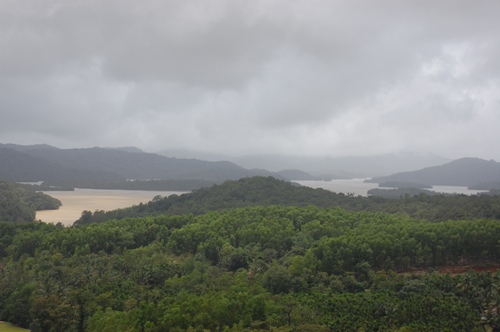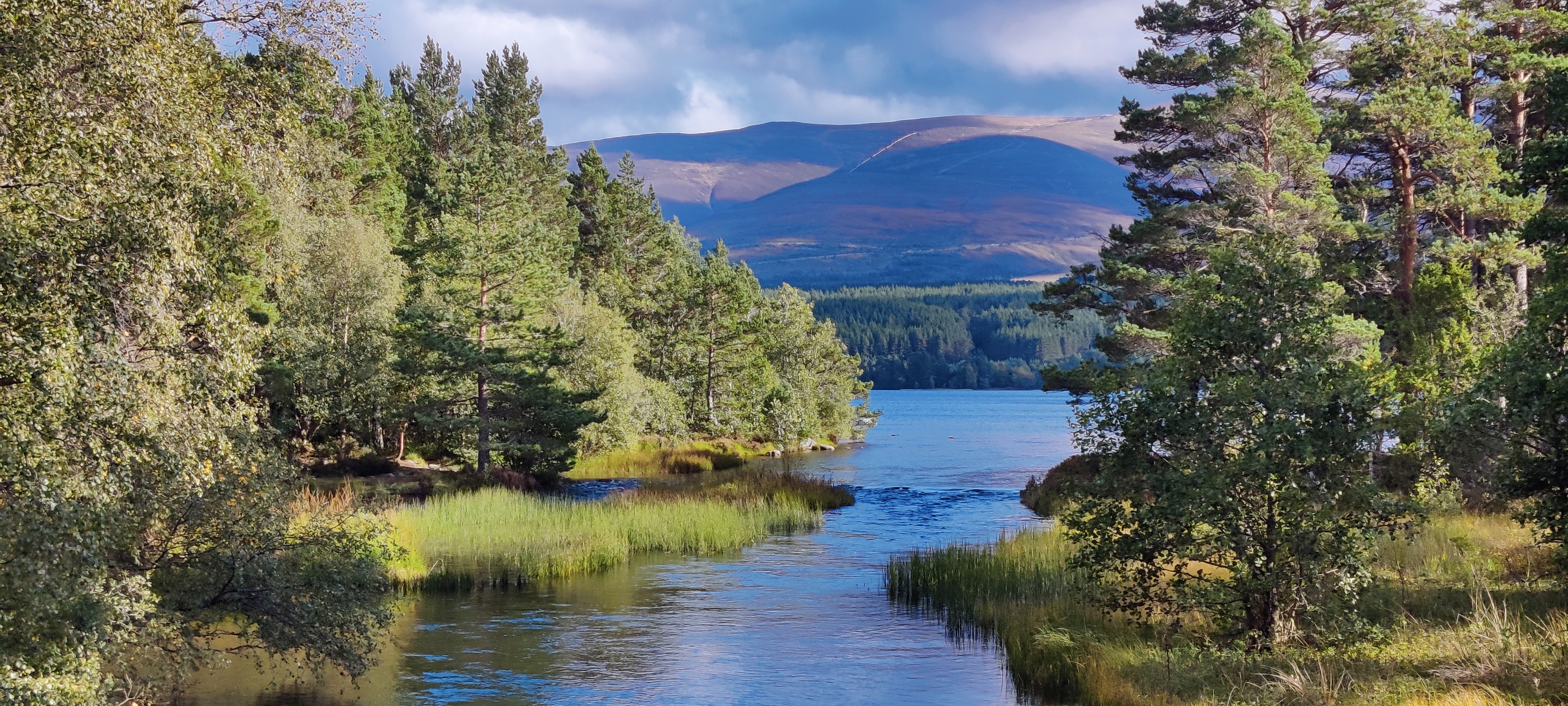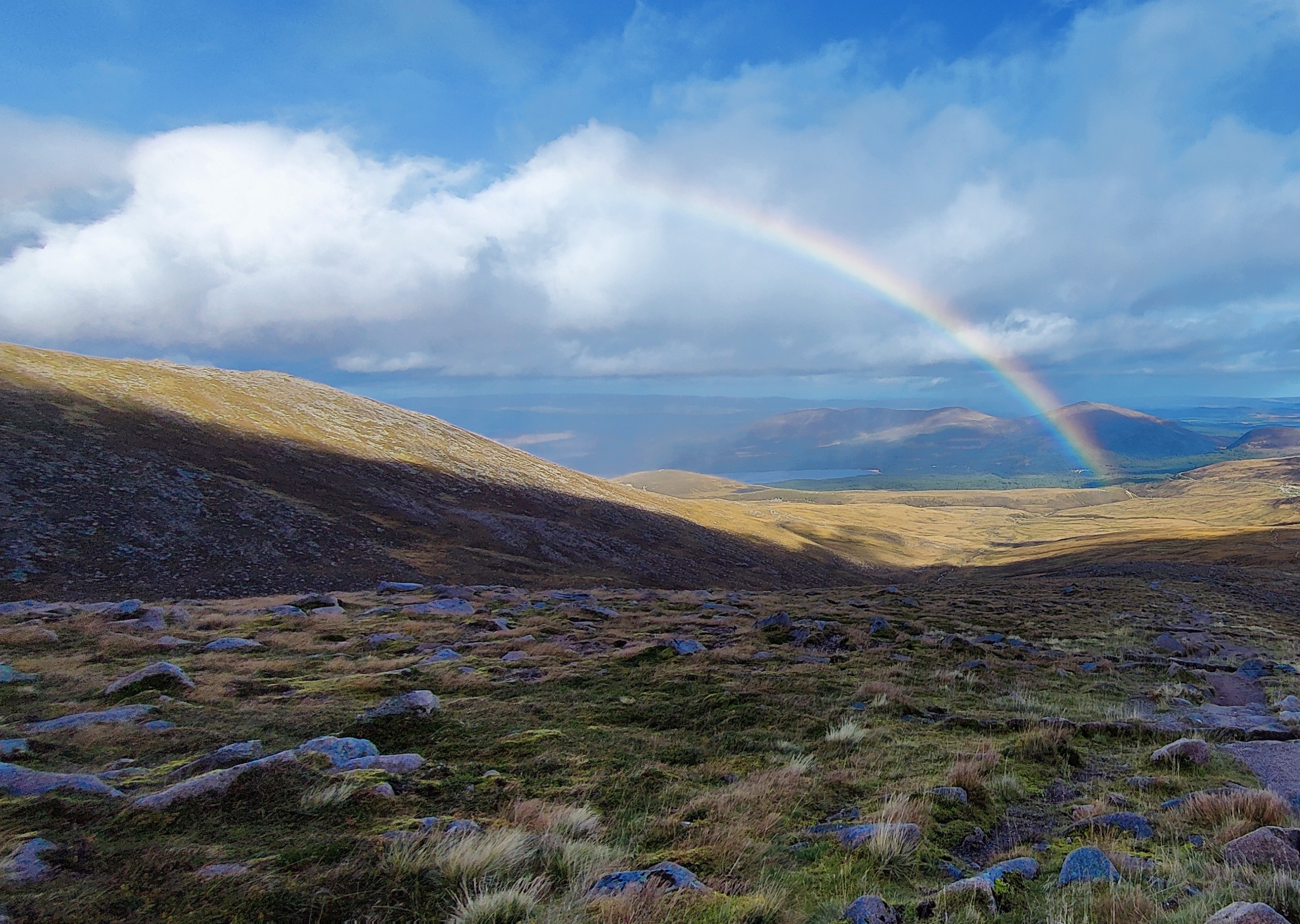Lashing rains. Howling wind. Western ghats can’t get better (and dangerous) than in the monsoons. We were on the Sirsi–Jog falls leg of our Western-Ghats-on-road exploration.

Jog Falls is the highest waterfall in India. The Sharavathy river takes a roaring plunge over 250 meters to bottom without any breaks (hence untiered). The river splits into four streams and each of the falls are named Raja, Roarer, Rocket, and Rani.
Jog Falls is an experience—one that words refuse to come out to explain it. It is mighty, scary, heavenly, the works!
On one side is the thunderously roaring water falling to the abyss, hitting against neatly chiselled rocks. Multiple streams. Often hiding behind thick mist. Adding to the wondrous beauty is an occasional rainbow formed as the shy sun rays peep through the clouds.
On the other side is the deep valley where the Sharavathy is flowing. Against the cloudy sky on a rainy day, the hills and valley looked more black than green. Sharavathy rushes away furiously, with more small water falls and streams joining her from both sides. Pushing away or polishing the rocks, pulling the shrubs and trees into her depths, in a hurry to embrace the Arabian sea at the distant Honavar, Sharavathy is highly energetic at Jog. At many of the watch points, we stood wonderstruck, watching her vigour.




Dams never fail to weave their charm on us, so we were drawn to the two dams nearby. The Talakalale reservoir acts as a balancing reservoir while the Linganamakki reservoir formed when the Linganamakki dam built across Sharavathy. At the banks of Talakalale, we spotted a wooden boat tied to the shore and we managed to get into it for a photo-op.


Linganamakki dam is about 10 km from Jog falls. The power station, earlier served by Hirebaskhara dam, is operational since 1948. The present dam was built only in 1960. Dams, especially those with power stations, are high-security zones. Security personnel were prompt in not allowing us close to the dam. We had to be satisfied with a view of the dam from a distant security outpost.
In summer, the roaring Jog Falls depletes to a thin stream. Come peak monsoon, the falls becomes more gorgeous and powerful when the shutters of the dam are open. Even though we visited Jog during monsoons, we have heard (and seen photographs like the one we borrowed and posted here) of a much mightier and awe-inspiring Jog Falls. With decreasing rain and diminishing forest area, the question is ‘for how long?’






Never been to this place.
It is really beautiful.
Vary nice Beautiful falls.more jog falls photos updates.
Thanks, Gundappa. 🙂
Jog falls is gorgeous and it looks breath-taking in monsoon when it flows in full swing…nice article..
I the like the real Jog Falls of the Hindu, the other one I was never impressed, I don’t know why, I always felt it was not worth visiting. The picture by Hindu is really good must have been taken years ago, for it almost looks as beautiful as the Niagara falls. Will the falls never be like that?
Should visit jog atleast once in your lifetime… especially during monsoon…
It is a spectacular view when water throbbes down that hillock….
Should visit jog, when is monsoon….
http://www.baluskt.blogspot.com
Good One…
Hi,
I am contacting you because I am a blogger and I also work for an
online marketing company where I am part of the management of a number
of online brands.
I have been looking at your website and would be really interested in
finding out about advertising on the site, or the possibility of
adding a unique article?
If this is something that is possible or if there are any further
opportunities available then it would be great to hear from you.
Many thanks
Jesper
Hi,
we can take advertisements.
on articles, we need to see it before committing.
tks
Sandeep, Santosh: Thanks for sharing more info.
Anu, Nisha, Kirigalpoththa: Thanks
One of the most beautiful waterfalls I have ever seen! This should be one of the best sights in the world. No doubt.
Thanks for all the photos!!!
Sandeep, I will remember 15th August. 🙂
Beautiful pictures that makes me want to go there.
So many places & so little time. 🙁
Jog falls is a wonderful place when its in full flow… but you would be highly disappointed if you visit it during off season (that is almost 9 months in a year).
The Jog has lost its earlier glory and is now under a controlled water release flow. Nearby falls like the Unchalli, Magod and Sathodi are more spectacular almost round the year and are a treat to the sore eyes.
hey, and the new look of the blog is great!!
wonderful pics! this is yet another place on my list of places to visit… wonder when i will be able to… and sandeep, thanks for the info,,,will remember that when i do plan a visit 🙂
lovely pictures! i guess the falls is at its best during the 15th august weekend as the dam authorities open the shutters for the visitors 🙂 for most part of the year, its an anorexic look-alike of the jog at peak monsoon.